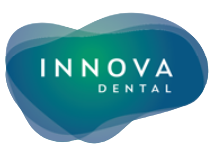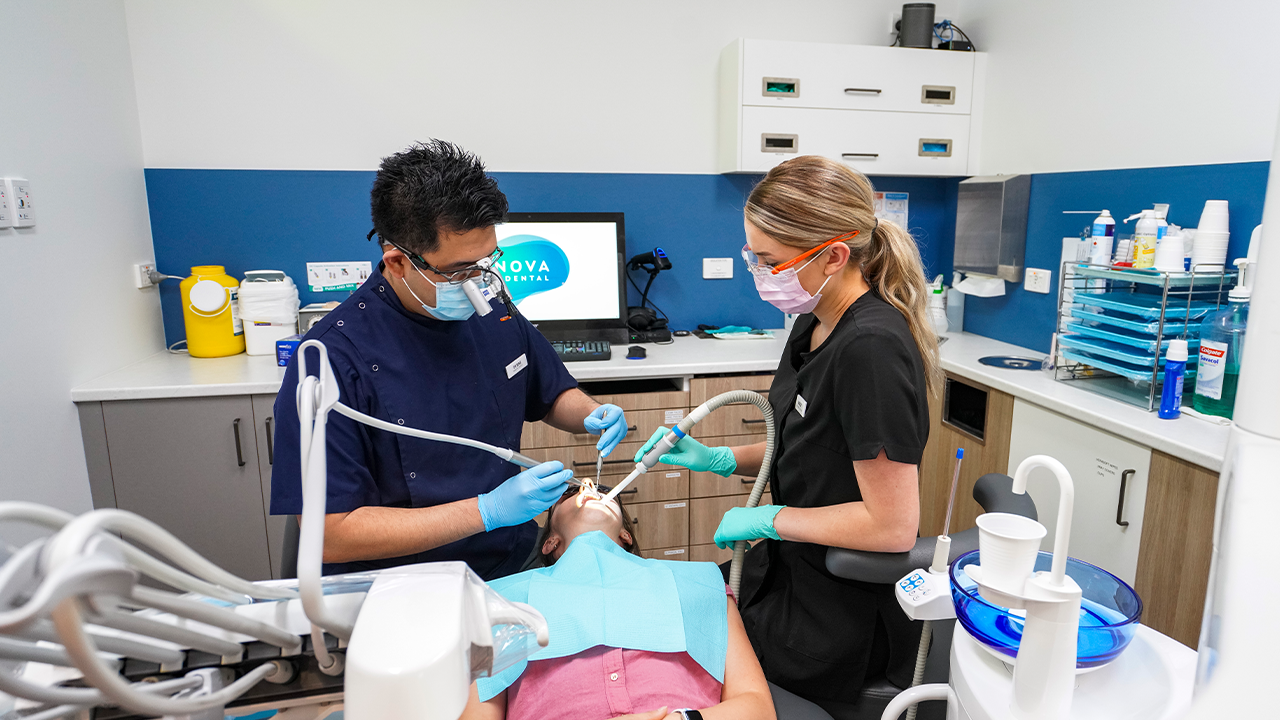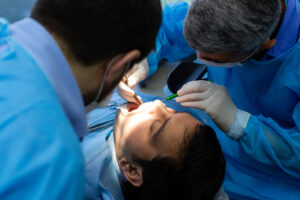Overview of Sedation Dentistry Techniques
Sedation dentistry has revolutionised the dental experience for countless individuals who suffer from dental anxiety or fear. By employing various sedation techniques, dentists can create a calm and relaxed environment, ensuring patients receive the care they need without unnecessary stress or discomfort.
There are several sedation dentistry techniques available, each tailored to meet different patient needs and levels of anxiety. These techniques include oral sedation, inhaled sedation with laughing gas, IV sedation, and general anaesthesia. Let’s explore each technique in more detail.
Inhaled Sedation
Inhaled sedation with “laughing gas,” is a widely used method to help patients relax during dental procedures. It’s a safe and effective technique that involves the administration of a colourless gas through a small mask placed over your nose.
Picture yourself sitting in the dental chair, feeling anxious about an upcoming dental treatment. The dentist places the mask over your nose and instructs you to breathe normally. Within minutes, you start experiencing a comfortable sensation of relaxation and ease. The once-terrifying dental chair now feels far less intimidating.
During this form of sedation, you remain fully conscious and able to respond throughout the procedure. One significant advantage of laughing gas is its rapid onset and offset of action. This allows for precise control over the level of sedation achieved, making it highly customizable for each individual patient.
Laughing gas is particularly beneficial for patients who have mild to moderate dental anxiety or fear, as it induces a state of relaxation and reduces discomfort without causing significant drowsiness or impairing cognitive function. Moreover, once the mask is removed, the effects dissipate quickly, allowing you to resume your daily activities immediately.
It’s important to reiterate that only trained professionals should administer inhaled sedation with laughing gas. They will monitor your vital signs throughout the procedure to ensure your safety and comfort.
Oral Sedation
When it comes to sedation dentistry, one popular option is oral sedation. This method involves taking a prescribed medication before your dental appointment to help relax and ease anxiety. Typically, medications such as triazolam or Valium are used. These medications work by binding to receptors in the brain, reducing activity levels and inducing a sense of calmness.
Oral sedation provides several benefits for patients seeking anxiety-free dentistry. Firstly, it helps in relaxing both the mind and body, making it easier to undergo dental treatments without excessive fear or discomfort. This relaxation can greatly benefit individuals with dental phobias or traumatic experiences from previous dental visits.
Furthermore, oral sedation often causes drowsiness, which can be helpful during longer and more complex procedures where patients might need to remain still and comfortable for extended periods. It allows dentists to work efficiently while ensuring patients are relaxed and comfortable throughout the process.
Of course, it’s important to note that the dosage and timing of oral sedation will vary depending on individual needs and factors such as age, weight, and medical history. Therefore, it’s crucial to consult with your dentist about the appropriate medication and dosage for your situation.
IV Sedation
For those seeking more profound relaxation during dental procedures, IV sedation is an effective option. This type of sedation involves administering medications directly into the bloodstream through a small needle inserted into a vein. IV sedation enables the dentist to have precise control over the level of sedation, as they can adjust the medication dosage throughout the procedure if necessary.
IV sedation induces a state of deep relaxation and may even cause mild amnesia, preventing you from forming clear memories of the dental treatment. This can be especially beneficial for individuals who have severe anxiety or traumatic experiences related to dental work.
Consider a patient who needs extensive dental implant work due to neglected oral health. The thought of sitting through these procedures might be overwhelming, causing intense fear and anxiety. In such cases, IV sedation could be recommended to induce a deeper level of relaxation that allows the patient to have a comfortable and stress-free experience.
One advantageous aspect of IV sedation is its rapid onset. Unlike other forms of sedation that take time to become effective, IV sedation works almost instantaneously. This makes it an excellent choice for patients who require immediate anxiety relief before undergoing dental treatments.
It’s essential to note that IV sedation should only be administered by properly trained professionals with relevant certifications and experience in sedation dentistry. These specialised dentists carefully monitor patients’ vital signs throughout the procedure to ensure their safety and well-being.
Unique Benefits of Sedation Dentistry
Sedation dentistry provides a range of unique benefits that make it an appealing option for individuals who experience anxiety or fear when visiting the dentist. First and foremost, sedation dentistry helps alleviate fear and anxiety, providing patients with a sense of calm and relaxation throughout the dental procedure. For those who have had unpleasant experiences in the past or suffer from dental phobias, this can be an absolute game-changer. By administering sedatives through various methods such as oral medication, sleeping gas inhalation, IV sedation, or general anaesthesia, dentists can create an environment that feels much more comfortable for the patient.
Another significant benefit is the reduction in the gag reflex. Many individuals have a sensitive gag reflex that can hinder dental procedures and cause discomfort during cleanings or treatments involving impression materials. Sedation dentistry effectively paralyses the gag reflex, allowing dentists to work more efficiently and patients to feel more comfortable throughout the process.
Furthermore, sedation dentistry provides pain relief during dental procedures. Dentists use specific sedatives and anaesthetics that eliminate pain sensations, ensuring that patients do not experience any discomfort during their treatment.
Alleviating Dental Phobias
Dental phobias are not uncommon, and for many individuals, they can be a significant barrier to receiving necessary dental care. The fear and anxiety associated with dental procedures often lead people to avoid appointments altogether, which can have severe consequences on their oral health. Sedation dentistry offers a powerful solution by alleviating these phobias and enabling patients to receive the care they need without fear or anxiety.
For individuals with existing dental phobias, sedation dentistry can help them overcome their fears. By creating a relaxed state, sedatives induce a sense of calm that allows patients to undergo procedures without panic or distress. This can be especially beneficial for those who have had traumatic experiences in the past or who suffer from underlying anxiety disorders.
Moreover, sedation dentistry prevents the development of new fears. It helps build positive associations between dental visits and feelings of relaxation instead of anxiety or fear. As patients experience comfortable and pain-free treatments while under sedation, they are less likely to develop additional phobias or anxieties related to dental procedures in the future.
Exploring Patient Experiences in Sedation Dentistry
The journey of sedation dentistry can vary for each individual as experiences often depend on factors such as the type of sedation used and personal tolerance levels. Some patients describe entering a “twilight state” where they feel deeply relaxed and detached from their surroundings. Others may experience a sense of heaviness or drowsiness, making them feel pleasantly sleepy throughout the procedure.
For those with dental phobia or debilitating anxiety, sedation dentistry provides relief and eliminates the fear associated with dental visits. Patients who previously avoided necessary dental work due to nervousness can now receive the care they need without the overwhelming turmoil. The calming effects of sedation allow individuals to undergo procedures in a stress-free manner.
Furthermore, many patients report having little memory of the actual dental procedure after being sedated. This phenomenon, known as anterograde amnesia, prevents the build-up of negative memories and allows patients to approach future dental visits with reduced anxiety. By erasing or blurring recollections of potentially distressing experiences, sedation dentistry helps create positive associations with dental care.
Ultimately, patient experiences in sedation dentistry may vary, but the overarching goal is to provide anxiety-free dental care. By ensuring patients are at ease and minimising discomfort, sedation dentistry offers a solution for those who have previously struggled with dental visits due to fear or anxiety.
How to Prepare for a Sedation Dentistry Appointment
Preparing for a sedation dentistry appointment involves several important steps to ensure a smooth and anxiety-free experience. Whether you have chosen oral sedation, inhaled sedation, IV sedation, or general anaesthesia, proper preparation is key to maximise the benefits of this approach.
Firstly, it is crucial to communicate openly with your dentist about any underlying health conditions, medications you are taking, and any concerns or fears you may have. This information will help your dentist determine the most suitable type of sedation for you and adjust the dosage accordingly. Remember, your dentist is there to support you and provide a comfortable dental experience.
For instance, let’s say you have elevated blood pressure and are taking medication for it. Your dentist needs to be aware of this to ensure that the sedatives used during the procedure do not interfere with your blood pressure regulation. Sharing such information ensures your safety and helps tailor the sedation plan to meet your specific needs.
Secondly, your dentist may advise you to avoid eating or drinking for a specified period before the appointment. This is typically done to prevent complications during the procedure, as certain sedatives require an empty stomach. Be sure to follow these instructions carefully and ask any questions if you are uncertain about the fasting guidelines.
Additionally, arrange for transportation to and from your appointment. Most types of sedation will impair your ability to drive or operate machinery for some time after the procedure, so having someone accompany you is essential. This person can also provide emotional support during this potentially stressful time.
Imagine you have opted for oral sedation to help alleviate your anxiety during a lengthy dental procedure. The effects of the sedative may persist for several hours, making driving unsafe. Having a friend or family member drive you to and from the appointment ensures your safety and reduces unnecessary stress.
Before arriving at the dental clinic, wear comfortable clothing and avoid wearing any jewellery or accessories that might interfere with the procedure. Remove any contact lenses, piercings, or dentures if necessary. These measures ensure that the focus remains on your dental care without any added discomfort.
By following these steps to prepare for your sedation dentistry appointment, you set yourself up for success. Clear communication with your dentist, adhering to fasting guidelines, arranging transportation, and being mindful of clothing and accessories will contribute to an anxiety-free and comfortable experience. Remember, proper preparation is key to unlocking the full benefits of sedation dentistry.
If you have any questions about sedation dentistry, call our reception for more information (03) 6388 1558.



